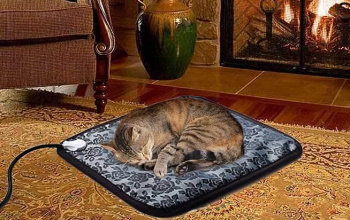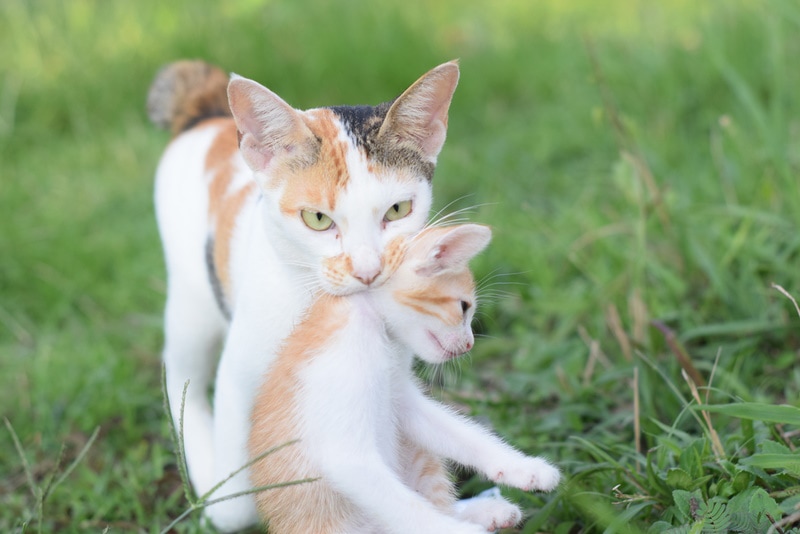Why Does My Cat Lick My Blanket: 7 Typical Reasons

Updated on
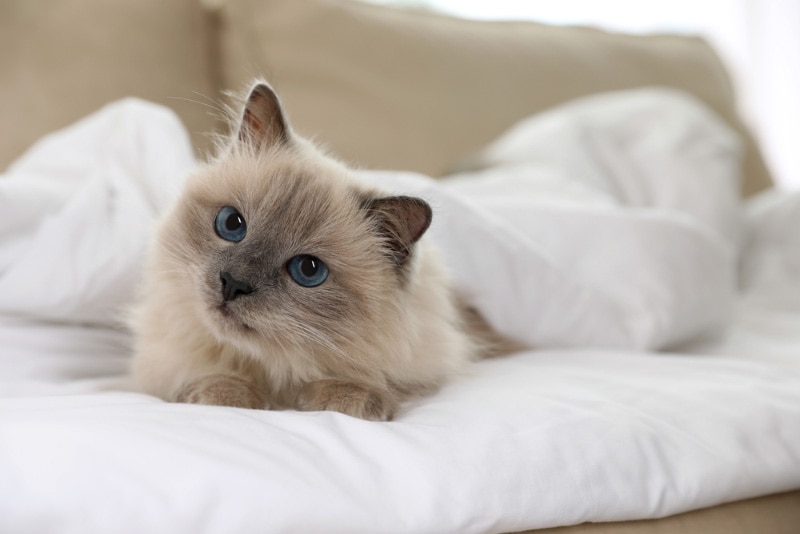
Pet cats have a lot of habits that seem strange to us humans. But many of those habits have good reasons. It’s just that we don’t necessarily understand those reasons. One such habit is licking blankets and other similar objects like jumpers and furniture.
While it can be a cause for concern if your cat is habitually licking the blanket, there might be a perfectly innocuous reason. Your cat may simply be able to smell you on the blanket, or it could taste food that has been dropped. It could even be attempting to impart its own scent on something that it views as being its own property.
Below, we look at seven of the most likely reasons that your cat might be licking a blanket, and whether it is cause for concern. We also look for ways you can attempt to stop this behavior.
The 7 Reasons Cats Lick Blankets
It’s important to consider context and history when looking for possible reasons for blanket licking. Check whether your cat seems anxious or worried. Is the cat still young? Did it leave its mother when it was still young? Read on below for more:
1. The Blanket Tastes of Food
Cats have amazing senses of smell, and even if you haven’t dropped food on the blanket if you’ve been eating near it, your cat might be able to smell whatever it was you were consuming. The stronger the smell and the more appealing it is to your cat’s pallet, the more likely your cat will lick the blanket as well as smell it.
If there are crumbs and remnants of food that have dropped on the blanket, this will make your cat even more likely to lick.
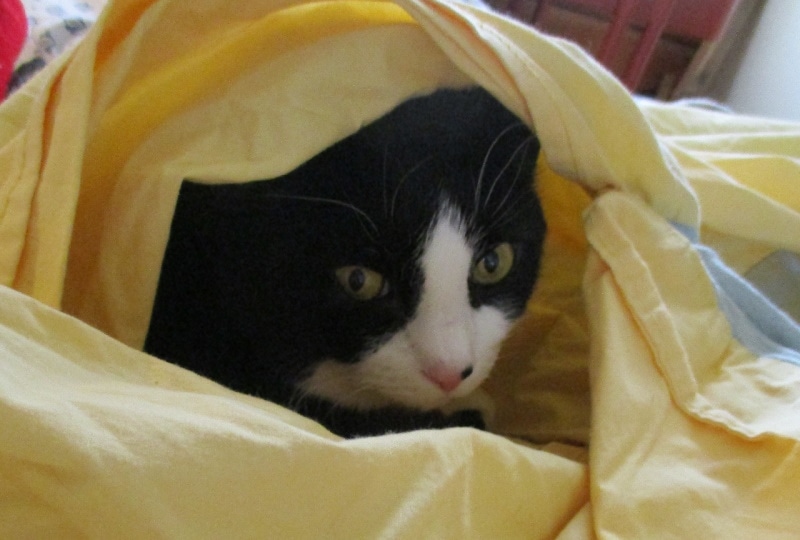
2. The Blanket Smells of You
Even those cats that seem aloof find some comfort and security from their owners. Your cat might spend most of the day in the closet with your clothes, rather than milling around your feet, but that doesn’t mean your feline friend doesn’t have a strong emotional attachment to you.
Your blanket will harbor your unique smell: a combination of sweat, oils, perfume, soap, and other aromas. By licking the blanket, your cat is enjoying your smell.
3. Scenting
In the wild, cats mark territory to ward off challengers and to potentially keep predators away. As pets, they market for similar reasons. This is especially common if you have multiple cats or if you keep dogs and cats, but some cats will mark their territory even if there isn’t an obvious challenge in the house. Your cat could be letting other cats know that the blanket belongs to them.
But the pheromones released can convey a lot of different emotions, so your cat could be conveying emotions like stress or anxiety in a bid to let its pack know.
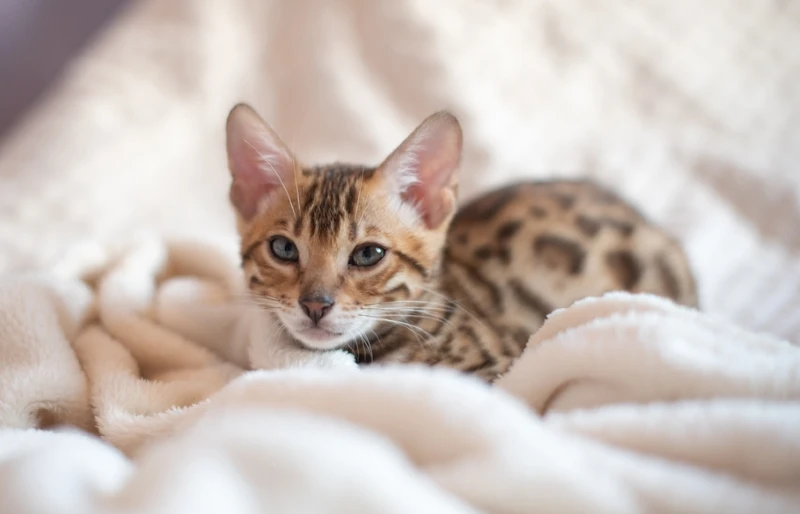
4. Breed Habits
Some cat breeds, such as the Siamese, have a longer weaning period and it is believed that this might be the reason that these breeds are more inclined to exhibit blanket-licking behavior.
Because these breeds suckle for longer, and into their more formative years, they are more likely to remember the pleasure and comfort they enjoy from doing so. Oriental breeds like the Siamese as well as the Havana, Persian, and Burmese are some of the breeds with a propensity to lick and suckle blankets.
5. Anxiety
Your cat may be suffering anxiety, especially if it obsessively and excessively licks the blanket. If you have made any big changes to your cat’s living conditions, this may be the cause. Cats like routine and they can struggle with change.
If you have moved house, somebody has left home, or you have brought another human or furry family member home, this could be causing your cat to seek the comfort of the blanket and may have led to licking and sucking the soft fabric.

6. Pica
Pica is an uncommon disorder, but it can occur in cats of any age and breed. It causes cats to eat inedible items. This can include furniture as well as clothes, blankets, and even hair. This isn’t just an unusual habit; it can be potentially dangerous.
If your cat consumes inedible items, it can lead to a serious blockage of the intestines. You should consult a veterinarian as soon as possible to help overcome this issue.
7. Early Separation
It is recommended that kittens are left with their mothers until they are at least 8 weeks old, and some breeds need to stay with their moms longer than this. If a kitten is taken away from its mom too soon, it can mean that they are more likely to lick and suckle blankets and other soft items later in life.
The softness of the blanket reminds the cat of its mother, and licking the blanket takes them back to a time when they had the security of their mother.
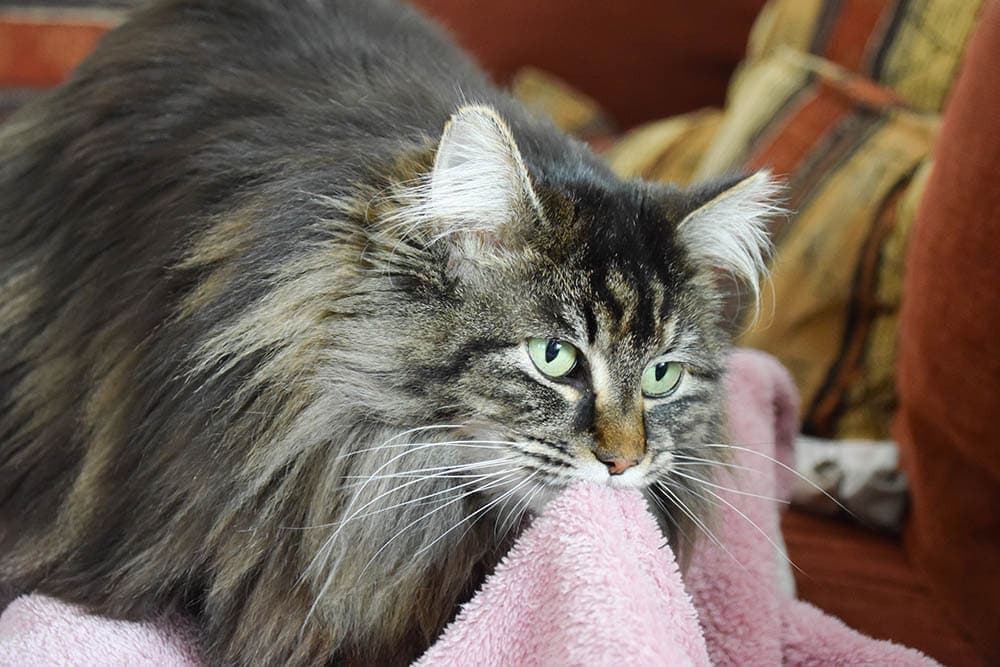
Is It Safe for Cats to Lick Blankets?
If it is occasionally licking, and there is nothing potentially harmful on the blanket, it should be fine. However, if your cat is licking the blanket all the time, it might be a sign of stress and anxiety. If it is chewing the blanket, rather than just licking it, it could be pica and should be investigated by your vet. And, if you wash the blanket in certain detergents or softeners, you should prevent your cat from licking it or change to a safer liquid.
How to Stop It
There are some steps you can take if blanket licking bothers you.
- For a start, you can prevent access to the blanket by putting it away in a cupboard and only getting it out when you use it, but this might not stop licking completely.
- Use a deterrent spray. You can make your own using white vinegar and lemon juice, but this will leave a strong, unpleasant smell on your blanket.
- You can also try and train your cat not to lick the blanket by offering praise and a tasty reward when it stops licking the blanket.
- If your cat is chewing the blanket, it may be a sign that your cat wants more chew toys.
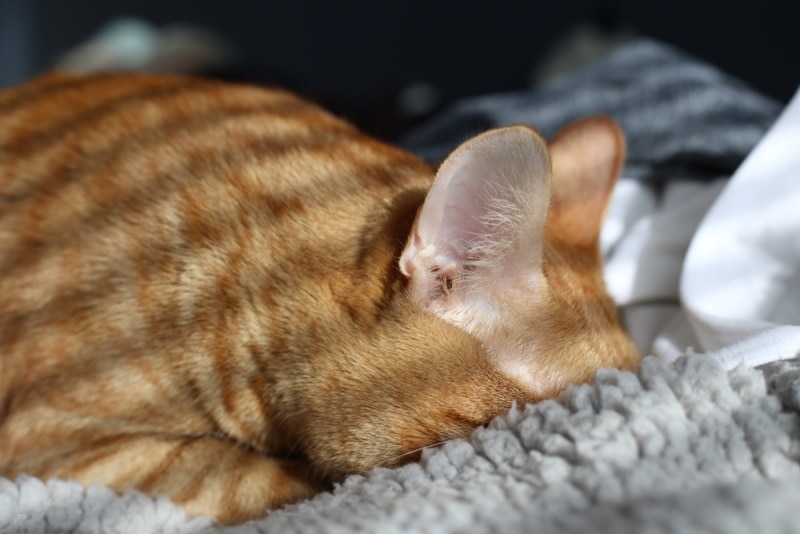
Why Does My Cat Lick Me?
Your cat licks you for similar reasons that it licks the blanket. It might be able to taste food or smell your scent on the blanket. It might be licking and suckling like it would have done with its mum, or it could be marking its territory.
It’s generally fine to let your cat lick you occasionally. However, avoid letting your cat lick open wounds or sores, and make sure you wash your hands or wherever your cat is licking you because your cat’s mouth can contain potentially harmful bacteria.
What Does It Mean When a Cat Constantly Licks Itself?
Excessive grooming could be a sign of anxiety or stress. Grooming releases endorphins in your cat, which work to help quell feelings of anxiety. If your cat is licking in one particular area, it could be a sign of pain coming from that spot. Or, it may have itchy skin, fleas, or some other skin condition that is causing irritation.
Identify the likely cause of excessive grooming and use this information to help prevent further licking. If your cat is stressed or anxious, get rid of the cause of anxiety and consider anti-anxiety remedies or medication. If it is suffering pain, or has some kind of skin irritation, visit your veterinarian and have them help clear the condition up so that your cat doesn’t need to lick.
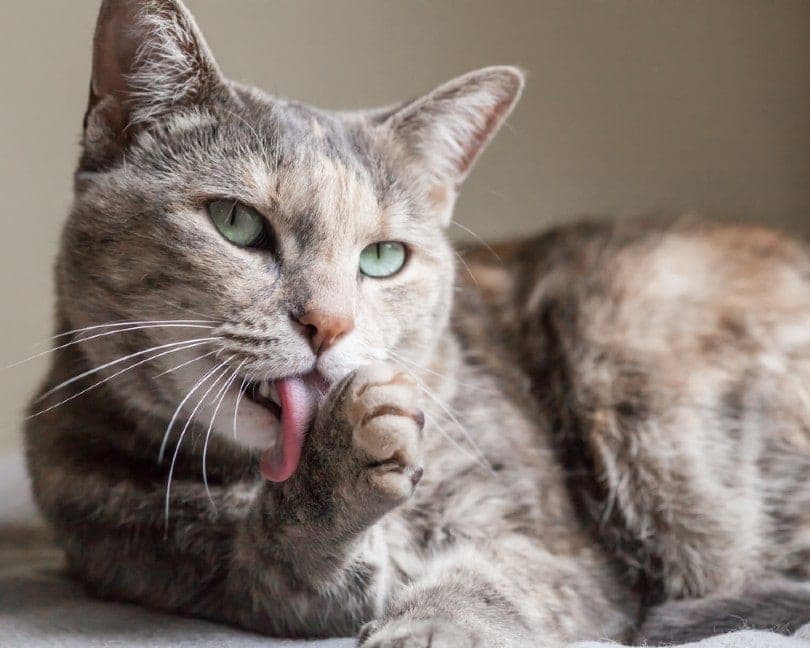
Conclusion
Cats have many different habits, some of which can seem odd to us humans. Licking a blanket or other soft material, for example, seems odd. But it could be that licking the blanket reminds your cat of weaning from its mother.
It could, however, be a sign of anxiety or stress, or if your cat is chewing and eating the blanket material, it could be a sign of pica, which needs to be addressed as quickly as possible to prevent intestinal problems.
See also:
Featured Image Credit: New Africa, Shutterstock

